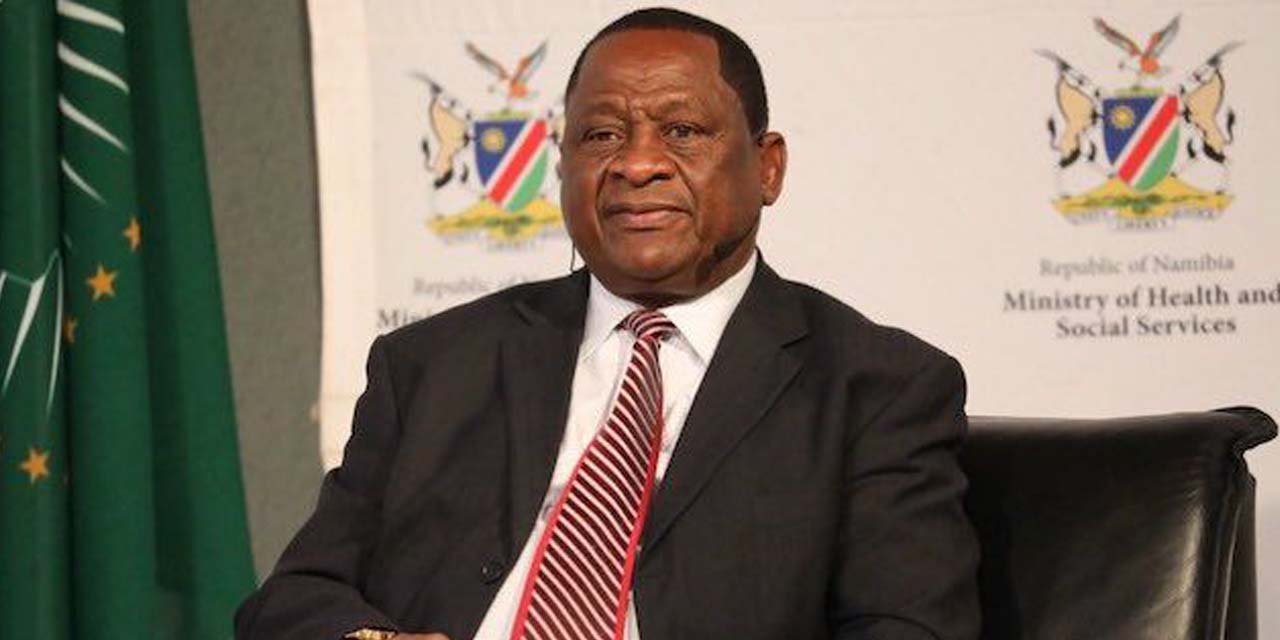Kandjemuni Kamuiiri
THE Government of the Federal Republic of Germany, through the German Embassy in Windhoek donated 200 000 doses of the AstraZeneca vaccine, while the United States of America’s donating through the COVAX Facility up to 100 620 doses of Pfizer Covid-19 vaccine to the Government of Namibia.
The handover of the AstraZeneca vaccines took place on Monday at the Minister of Health and Social Services, Kalumbi Shangula’s boardroom.
According to Shangula the Robert Koch Institute (RKI) supported Namibia to expand the capacity of the Namibia Institute of Pathology (NIP) to be able to conduct testing for COVID-19 diagnosis, which was successfully achieved within a short time.
Shangula informs that Namibia targets to vaccinate 1 501 041 eligible persons against Covid-19 by March 2022 to attain the required level of herd immunity. “As at 24 September 2021, a total of 256 580 first doses of COVID-19 vaccines have been administered, while 171 786 persons have completed the Covid-19 vaccination schedule,” he says.
In July Germany donated valuable medical supplies such as surgical gowns, FFP2/N95 face masks, care beds, antigen rapid tests and safety goggles, ventilators, pulse oximeters and PCR test kits.
On the Pfizer vaccine, Shangula announces that the donation was confirmed to President Dr Hage Geingob by the United States Ambassador to the United Nations, Linda Thomas in New York a day prior the handover during their meeting. “The donation demonstrates the U.S. Government’s commitment to support Namibia’s fight against the pandemic. I take this opportunity to express our sincere gratitude to the Government and people of the United States of America for this timely and welcome gesture,” Sangula says adding that the United States joined the list of friendly countries that have donated vaccines to Namibia, namely, China, India, The Netherland, Serbia, Zimbabwe and Germany.
“This donation complements what the Government bought with its own resources, namely Sinopharm, AstraZeneca and Johnson & Johnson vaccines,” Shangula maintains adding that the Pfizer Covid-19 vaccine was the first vaccine to receive Emergency Use Listing (EUL) from the World Health Organisation (WHO) in December 2020.
The Health Minister informs that during July the Ministry administered officials and health care workers the Pfizer vaccine. “It is administered in two doses, three weeks apart. Studies have shown that at two doses, the vaccine shows 95% efficacy at preventing symptoms that are consistent with Covid-19 infection,” Shangula states adding that the Pfizer vaccine is recommended for persons who are 12 years and above.
“I am glad to announce that vaccination with Pfizer vaccine starts immediately during this handover ceremony. Some staff members from Ministry of International Relations and Cooperation (Mirco) are among the first, to receive this vaccine in Namibia,” Shangula states.
He pointed out that the vaccination team at the ceremony would for the whole day vaccinate all people who would like to get vaccinated, focusing on those working in the Ministry’s office complex and surrounding areas. “The Pfizer vaccines will be made available at the established Covid-19 vaccination sites across the country. However, due to stringent cold chain storage requirements, and the imperative of reducing potential exposure to high temperatures, different regions and districts will announce and inform the public about the sites where the Pfizer vaccine will be available,” Shangulas shares.
He further states that the Government will work tirelessly and will spare no effort to ensure that they secure sufficient supply of vaccines for Namibia. “We will mobilise the public and the communities. We will work with all stakeholders to increase vaccine uptake in order to achieve the required level of herd immunity by the target date of March 2022,” Shangula says.
The Minister adds that achieving the set target is a challenge for all Namibians pointing out that the pandemic has disrupted the economy, and other aspects of public life. “Activities such as education, religious gatherings, sports, community and cultural events have been negatively affected and in order to return to the normal life we used to know, more people need to get vaccinated,” Shangula determines.




